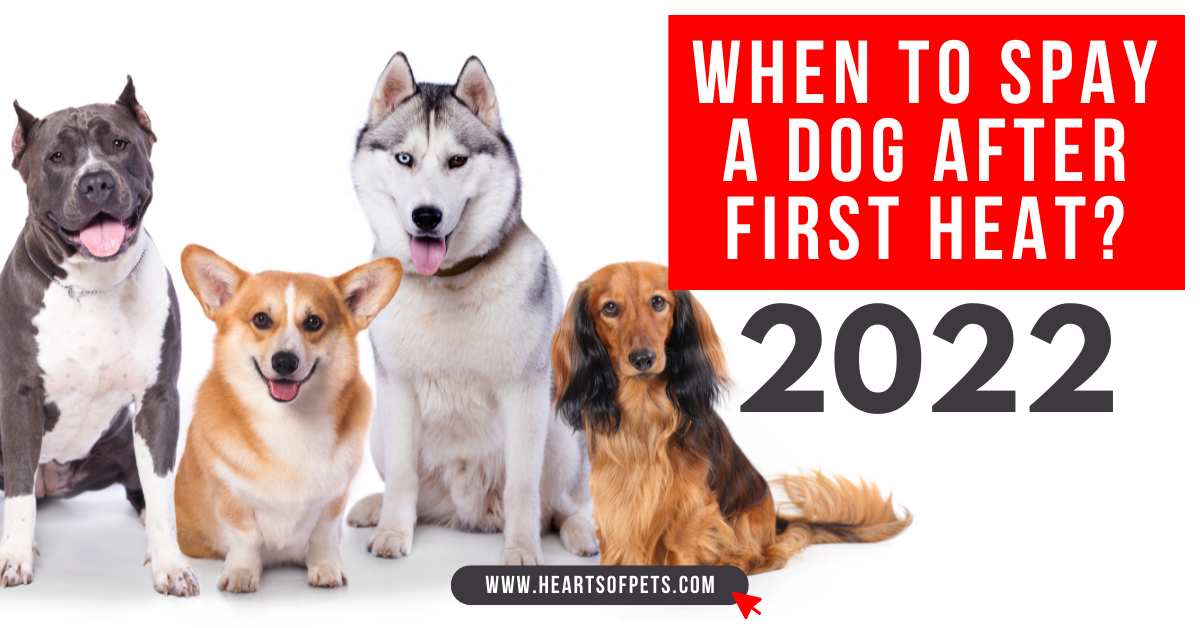As a devoted dog owner, my mornings often start with preparing a hearty breakfast that, more often than not, boasts the humble egg. Amidst the clinking of cutlery and the sizzle of eggs in the pan, I’ve caught my dog gazing longingly at my plate, compelling me to wonder – can dogs eat eggs too? After some careful research, I’ve come to understand that it is indeed safe for dogs to eat eggs, and they also bring numerous health benefits for dogs, cementing their place in my dog’s diet under the right conditions.
While I relish my eggs with a sprinkle of salt or a dash of spices, these seasonings don’t bode well for my furry friend. It’s essential to stick to simple, well-cooked eggs, sans the harmful additives, ensuring a treat that’s not only delicious but also packed with nutrition. Serving up protein-rich eggs has become more than just answering those pleading eyes; it’s about providing a supplement that enhances my dog’s health with vitamins and essential nutrients. But practicality reigns supreme in the world of canine diets, which means moderation and vigilance are my watchwords when offering these eggy delights.
Can Dogs Eat Eggs? Yes, they are generally okay for dogs.
- Eggs are a nutritious supplement that is safe for dogs to eat when prepared correctly.
- Advantages of eggs for dogs include a high protein content and essential vitamins and minerals.
- It’s best to avoid additives like salt and spices when cooking eggs for canine consumption.
- Moderation is key – eggs should complement but not replace a balanced diet for dogs.
- Consultation with a veterinarian can provide tailored advice for incorporating eggs into your dog’s diet.
The Nutritional Benefits of Eggs in a Dog’s Diet
As I’ve delved deeper into understanding what’s best for my dog’s health, I can’t help but be impressed by the powerful nutritional profile of eggs. Often, I find myself reaching for this versatile ingredient to bolster my pup’s diet with quality nutrients that support robust health. Known widely for their excellence, the nutritional value of eggs for dogs is something I deem indispensable for a well-rounded canine nutrition plan.

Rich in Essential Proteins and Amino Acids
When it comes to building and maintaining muscle, nothing beats the punch of high-quality protein. I make sure that my dog gets his share of this critical nutrient by including eggs as a significant protein source for dogs. The wide array of essential amino acids found in eggs perfectly complements his dietary needs, fueling his daily energy demands and muscle recovery after our lengthy hikes together.
Vitamins and Minerals for Canine Health
My quest for ensuring a well-balanced diet for my furry friend includes a variety of vitamins and minerals, and eggs are a powerhouse in this regard. The presence of Vitamin A and B12, along with folate in the eggs I serve, provides an essential boost to my dog’s immune system, nerve health, and cell growth. Minerals like iron and selenium further cement eggs as a cornerstone for my dog’s dietary wellness.
Positive Impact on Skin and Coat Condition
Every pet owner relishes the sight of a healthy, shiny coat, and eggs have worked wonders in this aspect for my pup. The integration of eggs into his diet has yielded a lustrous sheen and improved skin condition, thanks to the rich fatty acids and vitamins. I’m convinced that the consistent inclusion of eggs, from free-range sources no less, has been pivotal in supporting my dog’s dashing appearance and vitality.
Can Dogs Eat Eggs: Understanding Safe Consumption
When I consider incorporating eggs into my dog’s diet, it’s imperative to stress safety first. Cooking eggs for dogs is a far superior method compared to offering them raw. By cooking eggs, whether opting to make them hard-boiled or scrambled, I reduce the potential hazards linked to raw eggs for dogs, such as foodborne illnesses like Salmonella and concerns over biotin deficiency.

Our domesticated companions are different from their wild counterparts who might consume raw eggs without noticeable issues. It’s essential to adopt a more prudent approach. In their domestic environment, the risk of disease transmission or nutrition-related conditions necessitates a cautious strategy in feeding eggs to dogs.
Furthermore, even with cooked eggs, prudent portion control is vital. Eggs are nutritious and tasty, but they are best served as an occasional treat rather than a mainstay in their meal plan. Their diet should be diverse, and eggs, while beneficial, are just one part of a well-rounded nutritional approach for our furry friends.
Integrating Eggs into Your Dog’s Meal Routine
When I’m looking to diversify my dog’s diet with tasty and nutritious options, the benefits of eggs for dogs make them a superb choice. Properly introducing eggs to their diet not only supports canine health but also provides a source of enjoyment for my pooch. Experience has taught me that the method of serving eggs is as important as the decision to include them in the first place.
Cooking Eggs for Dogs: Boiled, Scrambled, or Fried
Serving up eggs for dogs is similar to prepping a meal for a cherished family member. They should always be served without salt, seasoning, or oil. Whether I go for boiled, scrambled, or the occasional fried egg, my top priority is ensuring they’re cooked in a way that’s safe and digestible for my furry friend.
Portion Control: How Much is Too Much?
I’ve learned that overindulging my dog with eggs can negate their health benefits. Moderation is key, which for most dogs means no more than one egg per day. It ensures they’re reaping the advantages without risking negative effects from excessive consumption.
Guidelines for Feeding Puppies vs. Adult Dogs
The stage of life my dog is in plays a significant role in how I use eggs in their diet. Puppies might have different nutritional needs compared to adult dogs, and portion sizes should reflect their growth and development stages. That’s why I always make sure to consult with my vet before making eggs a regular treat for my dog, whether they’re just a pup or a full-grown companion.
Precautions When Feeding Eggs to Dogs
As someone deeply involved in my dog’s nutrition, I recognize the importance of being aware of the potential risks associated with incorporating eggs in a dog’s diet. Though it’s generally safe for dogs to eat eggs, there are certain factors that every dog owner should consider to ensure the health and safety of their furry companion.
Risks Linked to Raw Eggs and Salmonella
I always stay alert to the threat of Salmonella, which can be present in raw eggs or those that haven’t been properly stored. As much as my dog might enjoy the taste, the possible consequences, such as sickness and diarrhea, are not worth the risk. Cooked eggs are a safer alternative, as the cooking process kills bacteria that could potentially harm both my pet and myself.
Understanding Biotin Deficiency and Egg Whites
Egg whites contain an enzyme called avidin that interferes with the absorption of biotin, a key vitamin for maintaining healthy skin and metabolism in dogs. Therefore, I’m cautious about feeding raw egg whites to my dog. Cooking neutralizes avidin, allowing for safe consumption without the risk of biotin deficiency.
Watching for Allergies and Food Sensitivities
Last but not least, dogs can have food sensitivities too, and eggs are no exception. Since introducing them to my dog’s diet, I’m vigilant for signs of allergies, such as itching or gastrointestinal upset. Consulting with my veterinarian before making eggs a recurring part of my dog’s diet is a crucial step to ensure their well-being.
Conclusion
The question of whether can dogs eat eggs should now have a clear affirmative answer for any responsible pet owner. Eggs are a treasure trove of nutrients, offering benefits for dogs such as essential proteins, vital vitamins, and minerals that support overall health, particularly improving skin and coat quality. Yet, it is crucial to keep in mind that the manner in which eggs are incorporated into our pups’ diet makes a difference. Serving cooked eggs ensures safety from risks like Salmonella and biotin deficiency which are associated with raw egg consumption.
As I navigate the culinary delights of feeding eggs to dogs, it becomes evident that moderation is paramount. Portion size should be carefully managed to maintain a balanced diet and prevent potential health issues like weight gain. A varied meal plan is essential to cater to my dog’s nutritional needs and prevent any monotony at the dinner bowl. Keeping a close eye on dietary reactions will also help in identifying any adverse responses to the introduction of eggs into their diet.
Ultimately, integrating eggs into my dog’s mealtime routine should heed a strategy of careful planning and mindfulness towards their health requirements. By ensuring a responsible approach, we can confidently serve up this nutrient-packed food as a tasty and beneficial component of our beloved dogs’ diets.
Precautions When Feeding Eggs to Dogs
Can dogs eat eggs?
Yes, dogs can eat eggs. They are safe as a treat and can be a beneficial addition to their diet when fed properly.
What are the benefits of eggs for dogs?
Eggs provide high-quality protein, essential amino acids, vitamins like A and B12, and minerals such as iron and selenium. They can contribute to better skin and coat health and support overall canine well-being.
How do eggs serve as a protein source for dogs?
Eggs are an excellent source of complete protein and provide all the essential amino acids that dogs need for muscle development and maintenance.
What vitamins and minerals do eggs provide for canine health?
Eggs contain various vitamins, including vitamin A and B12, and minerals like iron, folate, and selenium that support many aspects of canine health.
Can feeding dogs eggs impact their skin and coat condition?
Yes, due to the presence of fatty acids and vitamins within eggs, they can positively impact a dog’s skin and coat, leading to a shinier and healthier appearance.
How should I cook eggs for my dogs?
When cooking eggs for dogs, it’s best to keep them simple – boiled, scrambled, or fried without any oil, butter, or seasoning. This ensures they are safe for your dog to eat.
Is it safe for dogs to eat raw eggs?
It’s not recommended for dogs to eat raw eggs due to the potential risk of foodborne illness like Salmonella, and raw egg whites can interfere with biotin absorption.
What are the guidelines when feeding eggs to dogs?
Consult with your vet first, start with small amounts, watch for any allergic reactions or digestive issues, and always cook the eggs without harmful additives or seasonings.
What are safe ways to cook eggs for dogs?
Safe methods include boiling, scrambling, or frying eggs without the use of fats or seasonings. Keep it plain and simple to avoid digestive issues.
How much egg is too much for a dog?
The appropriate portion depends on your dog’s size, age, and overall health, but generally, one whole egg per day may be too much for small dogs. Moderation is key.
Are there different guidelines for feeding puppies vs. adult dogs?
Yes, puppies may have different nutritional needs compared to adult dogs, and the introduction of eggs should be accordingly adjusted. Always check with your vet.
What risks are linked to feeding dogs raw eggs?
Feeding raw eggs to dogs can expose them to Salmonella, and the enzyme avidin in the egg whites can lead to a biotin deficiency, affecting skin and digestion.
How can I understand if my dog has a biotin deficiency due to eating eggs?
Biotin deficiency can result in symptoms such as dull coat, skin inflammation, and weaker immunity. If you notice such symptoms, consult your vet.
How do I know if my dog is allergic to eggs?
Just like in humans, dogs can show allergic reactions through symptoms like itching, swelling, gastrointestinal upset, or difficulty breathing. If these occur after eating eggs, seek veterinary guidance immediately.






